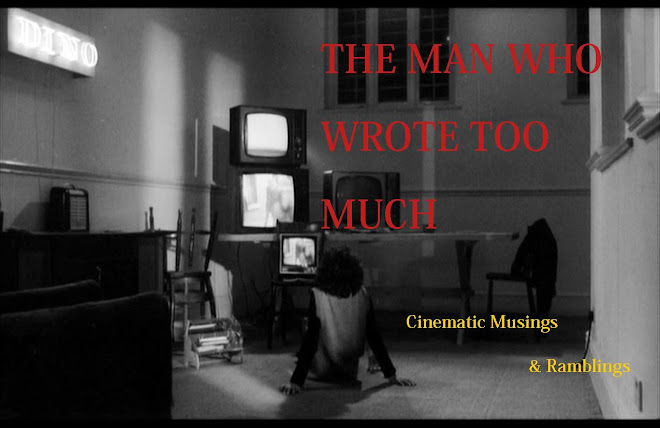The film begins with images of a decrepit late cold war era Berlin. Zulawski casts the action primarily in streets that surround that omnipresent image of government control and repression in the form of the Berlin Wall (it should be noted here that Zulawski is very much a victim of government oppression, he has, since this picture spent his career making films in France following suppression of his work in his native Poland).
+2.JPG)
We immediately find ourselves in the company of Mark (Sam Neill) who appears to work for some shady government agency, and is just returning from an extended assignment. He arrives home and is immediately caught in a domestic argument with his spouse Anna (Isabelle Adjani). With this Zulawski throws the audience immediately off kilter. The argument refers to many things we are not privy to, and tensions between the pair have clearly been building for some time, exploding before our eyes without clear exposition within the first minutes of the film, leaving the viewer confused in medias res.
For the first thirty or so minutes, the film comes across like Kramer vs. Kramer (1979) recast with mental patients. Both central performers give such extreme performances that it’s amazing that they remained stable following conclusion of the picture. Sam Neill, not a stranger to psychological horror, flits wildly between Somnambulistic calm and hysterical rage, whilst Adjani (who deservedly won the best actress award at Cannes for her performance) provides a stunning mental collapse that soon becomes deeply uncomfortable to watch. Previous to this picture my primary experience of Adjani’s work had been her ‘kooky’ turn in Polanski’s The Tenant (1976) and her purposefully muted and ethereal performances in Walter Hill’s The Driver (1978) and Herzog’s remake of Nosferatu (1979), which made the impact of her performance here all the more overwhelming.
+3.JPG)
After this opening half hour, and Mark’s subsequent hiring of a private investigator to find out what his wife is up to, the film’s previous preoccupation with the breakdown of a family unit makes way for surrealism and symbolism, as it is revealed that as well as conducting an extra-marital affair with the sinister bi-sexual kung-fu loving Terrence Stamp alike Heinrich (Heinz Bennett). Anna is also shacked up in a dilapidated squat with a creature that appears like the half formed afterbirth of a H.R. Giger creation (actually created by Carlo Rambaldi, who would go on to operate ET!) . A mess of phallic tentacles and goo, could this creature be a result of Anna’s frenzied insanity? (ala Cronenberg’s 1979 divorce catharsis The Brood) And holy shit is it slowly evolving into something more human possibly? (Clive Barker was surely taking notes).
The film descends further into delirium as Anna appears to miscarry in cinema’s most disturbing subway passage scene outside of Gasper Noė’s Irreversible (2002). Bodies begin to pile up, Mark gets involved in a relationship with an idealised doppelganger of Anna, the government agency decide they need to ‘terminate’ Mark’s contract, and all the while Anna’s secret lover begins to evolve as the plot moves towards complete Armageddon.
+4.JPG)
If this all sounds like unbridled chaos, that’s because it is. Fortunately Zulawski somehow manages to keep control of proceedings and directs with the assurance of someone who truly believes in his work. The opening half of the film is played out in cramped modernist apartments that seem to be as much made up of tight corridors as rooms. Zulawski’s camera prowling round the abodes with a frenzied abandon complementing our protagonists increasingly fractured states. By the second half though, he cools and we seem to be in a Berlin more akin to the Lower East Side in the early 80’s, large old spaces crippled by a decaying ghettoisation. He then turns everything on its head and creates an action cinema pastiche to conclude proceedings. By this point it is more than evident Zulawski is one of those precious mad fuckers who laugh in the face of the ‘language’ of cinema.
Zulawski has continued a career of defying generic expectations he has gone on to subvert such areas as science fiction, the period drama and the musical. A one of a kind maverick, enter the world of Zulawski with an open mind and reap the benefits of a disturbed and fevered imagination.

+1.JPG)
+2.JPG)
+3.JPG)